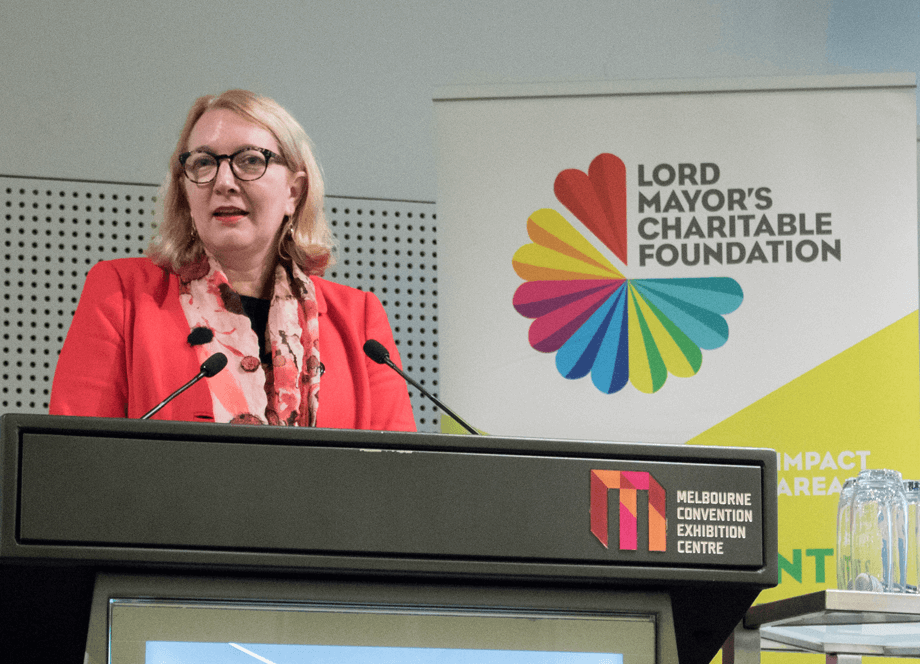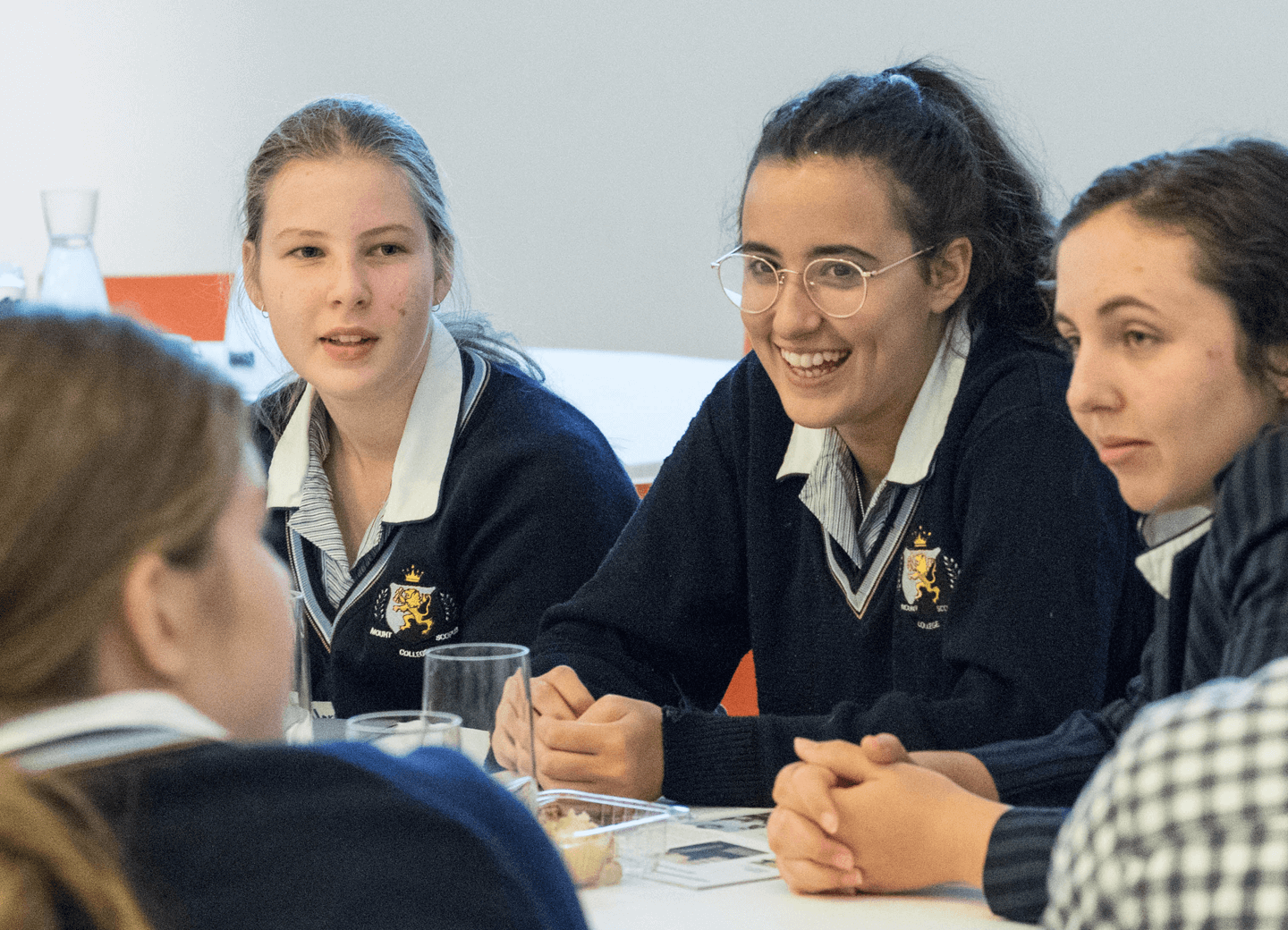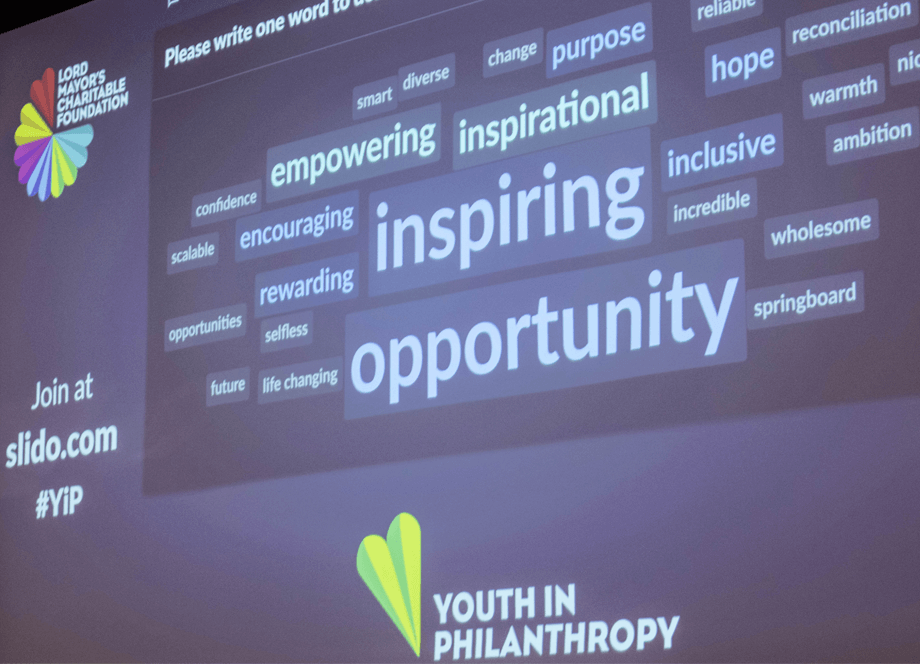At the Foundation, we have committed to building a Knowledge Hub on our website and within everything that we do.
Philanthropy that is based on evidence and a thoughtful understanding of sectors and systems can make a major impact within our community. For a foundation like Lord Mayor's Charitable Foundation, knowledge is another philanthropic asset that sits alongside our funds and networks. But knowledge just for our internal use is only seeing part of its potential.
I have spoken and participated in several forums in recent weeks that have led me to reflect on the Foundation's relationship with knowledge.

Catherine Brown speaking at the Youth in Philanthropy Forum
Yesterday at our Youth in Philanthropy Forum with 20 school teams, we undertook a Vital Conversation using data from our Greater Melbourne Vital Signs report and the online polling tool Sli.do. We wanted to share some insights about the big issues facing Melbourne before the Youth in Philanthropy teams chose their impact issue and began delving into the world of community philanthropy. It was great to hear some of them say that they wanted to 'burst the bubble' of their comfortable lives and learn about their community and the change they could help make happen.

Youth in Philanthropy participants discuss the Vital Signs report.
Many students knew more than they thought. Just over half knew that only 0.7 per cent of rental houses in Melbourne are affordable for a household living on welfare payments and more than half thought that discrimination had increased in the past five years - which is based on the Monash Scanlon research.
The students were shocked by the data on the time it takes for a young person to finish school, TAFE or university and find full time employment which is 4.7 years. Seventeen per cent knew that the fastest growing group of people couch surfing due to homelessness were older women - an increase of 82 per cent in five years.

Sli.do in action at this year's Youth in Philanthropy Forum.
Learning more from the Vital Signs data helped students make informed decisions about the areas they wanted to work on in the Youth in Philanthropy program. Each team will advise on $10,000 of grants to be shared between three not for profit organisations, which will pitch to the student teams during site visits.
Australia will grow a culture of philanthropy with the support of lawyers and financial advisers helping people think through their Wills and raise the idea of giving back to their community with clients. The Giving Australia report helps us know how much more altruistic we can become as a community.
Funding research and sharing knowledge with the community on important issues facing Melbourne is an important role for philanthropy. Two great pieces of work we have funded spring to mind. Mapping Melbourne's foodbowl through the FoodPrint project, undertaken by the University of Melbourne, has been a critical step in helping us think in a more integrated and longer term way about a sustainable food system for Melbourne.
Supporting Monash Sustainability Institute to work with volunteer expert researchers to map Australia's progress against the Sustainable Development Goals is another example of Philanthropy leveraging knowledge for the benefit of the community. This work is now underway and you can visit the website and provide feedback.
/The-Challenge-(1)/The-Challenge/AHC-Web.png.aspx)
The Foundation's commitment to sharing knowledge and learning was demonstrated again last week when we hosted Dr David Rosen, a US expert advisor on affordable housing project financing. David is advising the Foundation as we undertake our Affordable Housing Challenge. Having advised the MacArthur Foundation and many other housing developers on large scale affordable rental housing developments, David had a lot to offer the government agencies and potential funders who were able to meet with him while he was with us. Our knowledge in this area is growing quickly.
A combination of knowledge and longer term thinking will enable our community to tackle some of the tough issues we are facing from a more informed perspective. Deeper knowledge leads to better philanthropy.
Catherine Brown
Chief Executive Officer